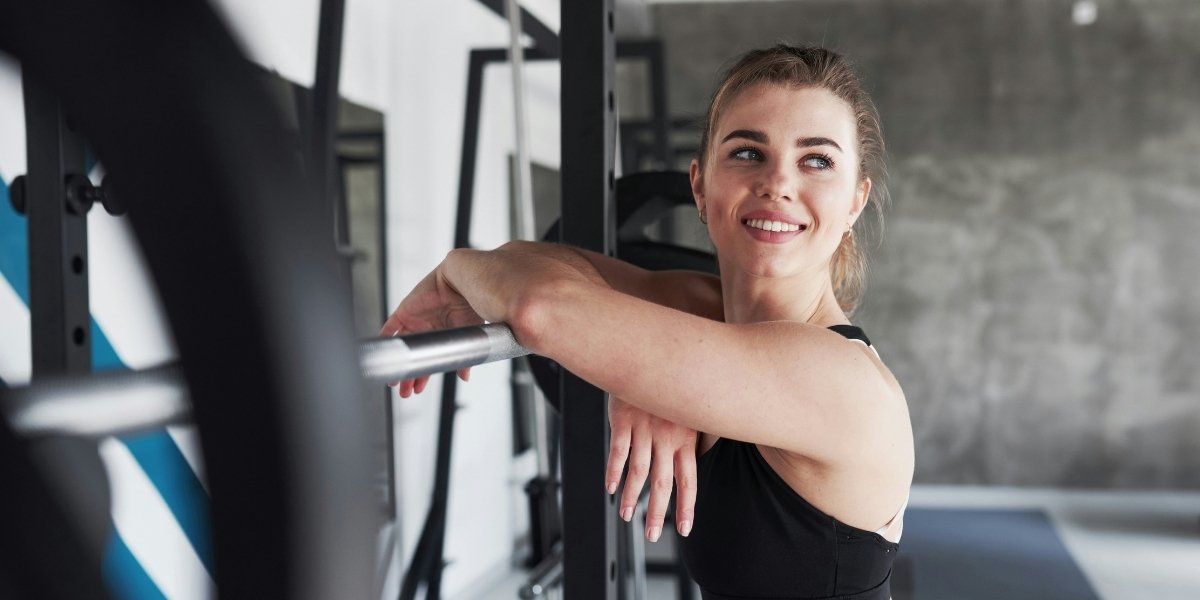The concept of mindful fitness has gained attention in recent years, with more people seeking to combine physical activity with a greater sense of mental and emotional well-being. Pilates has emerged as one of the key practices in this shift, offering a form of exercise that integrates both physical movement and mental focus. While Pilates has long been recognized for its physical benefits, it also promotes an awareness of the body and breath, contributing to a more mindful approach to fitness.
Read also: How the Olympics Drive Track and Field’s Popularity
What is Mindful Fitness and How Does Pilates Fit In?
Mindful fitness refers to exercises that encourage individuals to focus not only on the physical movements but also on the mental and emotional experience of the workout. This approach promotes awareness of the body, its alignment, and its sensations during each movement. Pilates, with its focus on controlled, deliberate movements, aligns well with the principles of mindful fitness. The practice encourages participants to pay attention to how they move, breathe, and engage their muscles, fostering a deeper connection between the mind and body.
At the heart of Pilates is the idea of control, which goes beyond the physical aspects of the workout. Each movement in Pilates is performed with intention, and participants are encouraged to breathe deeply and remain present throughout the session. This focus on both the body and the mind makes Pilates a suitable form of mindful fitness, as it incorporates mindfulness techniques while also working on strength, flexibility, and posture.
Why Has Pilates Become Popular in the Mindful Fitness Movement?
The rise in popularity of mindful fitness practices like Pilates can be attributed to a growing awareness of the importance of mental well-being alongside physical health. As more people look for ways to manage stress and improve their mental state, they are turning to practices that emphasize relaxation and self-awareness, such as Pilates. Pilates offers a low-impact workout that encourages mindfulness without the intensity often associated with other forms of fitness.
Additionally, Pilates is adaptable and accessible. People of all ages and fitness levels can benefit from Pilates, and it can be practiced in a variety of settings—whether at home, in small groups, or in specialized studios. Its flexibility, along with its focus on mindful movement and mental clarity, has contributed to its growing role in the world of mindful fitness.
What Makes Pilates Unique in the Mindful Fitness Landscape?
Pilates stands out in the mindful fitness landscape because of its emphasis on core strength, breathing, and controlled movements. These key elements help to build not just physical strength but also mental clarity and focus. Pilates exercises often require slow, deliberate movements, encouraging participants to stay fully engaged in the present moment. This focus on precision can make Pilates a more mentally demanding form of exercise compared to other fitness routines that may focus primarily on speed or endurance.
Moreover, Pilates’ concentration on posture and alignment helps individuals develop a greater awareness of their body’s movements. This awareness extends beyond the workout itself, as individuals may become more conscious of their posture and alignment in daily activities, contributing to a healthier overall lifestyle.
How Does Pilates Promote Mental Clarity and Emotional Well-being?
One of the aspects that draws people to Pilates is its potential to offer a mental break from the stresses of daily life. The practice of Pilates encourages participants to focus on their breath and body movements, creating a mental space that helps clear away distractions. By paying attention to how the body feels during exercise and focusing on the breath, individuals may experience a calming effect that contributes to stress reduction and mental clarity.
This mental focus is a key part of the mindful fitness experience. Pilates requires individuals to concentrate on every movement, which can help improve mindfulness and reduce feelings of overwhelm. Over time, practitioners may find that Pilates helps them to stay more present in other aspects of their lives, reducing anxiety and increasing emotional resilience.
Additionally, Pilates has been shown to improve posture and flexibility, which can have an impact on overall emotional well-being. Many people report feeling more confident and at ease after incorporating Pilates into their routines, as they experience both physical and mental improvements.
Can Pilates Be Considered a Holistic Approach to Fitness?
Yes, Pilates can be considered a holistic form of fitness. Unlike many traditional workout routines that focus exclusively on strength, endurance, or cardiovascular fitness, Pilates encourages a more well-rounded approach to physical and mental health. Pilates addresses strength, flexibility, balance, and posture while simultaneously incorporating mindfulness practices such as breath control and focused attention.
The holistic nature of Pilates also encourages individuals to listen to their bodies, making modifications as needed. This attentiveness fosters a deeper connection between the mind and body and encourages a more individualized approach to fitness. As a result, Pilates is often seen as an exercise method that promotes overall well-being, not just physical appearance.
How Does Pilates Compare to Other Mindful Fitness Practices?
While Pilates is certainly a mindful practice, it’s not the only one. Practices like yoga, tai chi, and even certain forms of strength training can also incorporate mindfulness techniques. However, what sets Pilates apart is its specific focus on core strength, alignment, and posture. Unlike yoga, which places a greater emphasis on flexibility and breath work, Pilates focuses more on muscle control and alignment throughout each movement.
Pilates also stands apart from tai chi in its more structured and focused movements. Tai chi emphasizes flowing, continuous movement, whereas Pilates exercises are often performed in a more controlled, repetitive manner, helping to improve muscle endurance and strength. Both practices promote mindfulness, but Pilates is generally regarded as being more targeted in terms of muscle engagement and structural alignment.
Who Can Benefit from Pilates as a Mindful Fitness Practice?
Pilates can be beneficial for people of all fitness levels. Because it focuses on slow, controlled movements, it is a low-impact form of exercise that can be suitable for individuals recovering from injury or those with joint concerns. Pilates helps build strength and flexibility without the high-impact strain associated with many other forms of exercise.
It also provides a full-body workout, which makes it appealing to a wide range of people, from athletes seeking to enhance performance to those simply looking for a more mindful approach to fitness. Its focus on core strength and stability makes it especially helpful for people with postural issues or those seeking to improve their balance and coordination.
Additionally, Pilates encourages individuals to be mindful of their own limitations and needs, making it an excellent practice for those who are new to fitness or seeking a more intuitive approach to their workouts.
What Does the Future Hold for Pilates and Mindful Fitness?
As the demand for mindful fitness practices continues to grow, Pilates is likely to remain a popular choice for those seeking a more balanced approach to physical and mental health. The increasing recognition of the benefits of mindfulness in reducing stress and promoting overall well-being suggests that practices like Pilates will continue to attract people looking to improve their health in a holistic way.
Pilates, with its focus on alignment, strength, flexibility, and mindfulness, fits well within the broader movement toward more thoughtful, intentional approaches to fitness. As more individuals turn to Pilates to enhance both their physical and emotional health, the practice may continue to evolve, offering even more opportunities for people to connect with their bodies and minds.
Read also: The Growth of CrossFit: A Fitness Revolution
Final Thoughts on Pilates and Mindful Fitness
Pilates offers a unique combination of physical exercise and mental focus that makes it an ideal practice for mindful fitness. By promoting awareness of body movements, breath, and alignment, Pilates encourages individuals to engage in their workouts with intention and mindfulness. As more people seek out fitness practices that support both physical health and mental well-being, Pilates will likely remain a prominent choice for those looking to embrace a more holistic approach to fitness. Through regular practice, Pilates provides individuals with a way to improve strength, flexibility, and posture, all while fostering a sense of mental clarity and emotional resilience.








